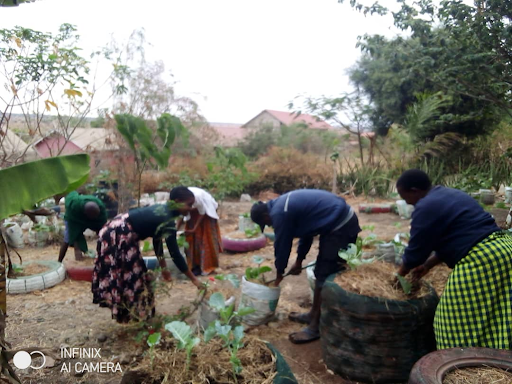
UPDATE Tanzania Makuyuni Boma Community Power Growing Food Security Together October 2024
Growing food in the permaculture gardens is an ongoing process – cow peas are planted and then harvested every three or four weeks. Longer growing vegetables and fruits are planted based on the seasons and water access. School students – all of them in the primary grades – water their garden plots and help with the weeding and harvesting of foods from the gardens. These vegetables are added to their meals … all cooked in the school kitchen located just beyond the dormitory.
The kitchen staff cook about 1500 meals each week; two meals each school day for all the kids Additionally they cook food for the 130+ kids living in the dormitory 7 days a week. Teachers and other staff who work very long hours also share in the meals served during the school days.
All meals are cooked in the school kitchen which uses wood gathered from the area around the boma. As well, all kitchens in each boma (home) use firewood harvested from the land. That is ALOT of firewood. And a practice that is not sustainable. In earlier times the Maasai were able to move with their livestock to new pastures with access to fire wood but now due to curtailment of their access to these pastoral lands their lives are mostly sedentary
The community is now turning its energies to learning about biogas. As a logical part of the permaculture program, it’s an environmentally-friendly, renewable and sustainable energy source they can produce right in the community. It is created by breaking down organic matter; food scraps, animal and human waste in an enclosed container. The gas produced from the decay of the organics is piped to stoves … and then used as fuel; instead of fire wood.
The plan is to begin with a biogas plant right beside the school kitchen. It will provide about 50% of the fuel we need to cook the 1500 meals we provide for the students and teachers each day.

